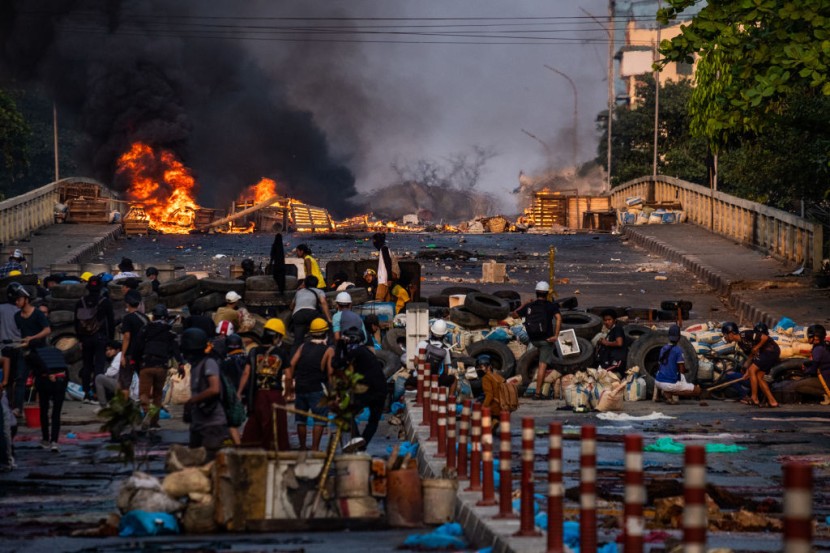In reaction to escalating protests, Myanmar's acting military leadership has shut down broadband internet access indefinitely. The step comes just two months after a military junta deposed Aung San Suu Kyi, the country's democratically elected leader.
Myanmar government shuts down internet access

According to Reuters, the closure affects wireless internet connectivity, although a separate order prohibiting mobile internet use at night remains in place. State telecoms issued the orders, but no official explanation has been given.
Myanmar is currently involved in demonstrations against the military government, which has reacted with increasingly totalitarian surveillance and censorship initiatives and brutality, which has resulted in over 500 deaths and thousands of arrests since February. Multiple telecoms have been forced to shut down various internet networks such as mobile data, roaming, and public Wi-Fi for different periods.
The act brought the internet shutdowns to a new degree of intensity. The actions seem to be intended to suppress protest organizations and make it more difficult for Myanmar citizens, journalists, and human rights advocates to broadcast what is happening on the ground to the rest of the world.
Myanmar's military is allegedly using surveillance drones, phone-hacking devices, including European-made iPhone hacking tools, and apps for breaching personal computer encryption. Those are part of the widespread digital offensive against the opposition, The New York Times reported.
Australia Reveals Plan to Build Missile Guide to Boost Defense, Collaborates with the US
Myanmar shutdown of internet heightens fears of news blackout
Myanmar's military government has instructed internet service providers to close down cellular broadband networks only days after industry organizations urged end-to-service disruptions. The junta-appointed Ministry of Transport and Communications released an order today, according to telco provider Ooredoo, instructing "all cellular internet data networks to be temporarily halted from today until further notice."
Nikkei Asia reported that cutting all Wi-Fi reliant on fixed wireless access would exacerbate Myanmar's telecommunications and internet space restrictions. After the coup, the junta has instituted a complete data blackout twice, censored social media outlets and blogs, implemented a regular internet freeze, and prohibited mobile internet use.
Further restricting internet connectivity would certainly heighten concerns of escalating security force activity. As of March 31, the Assistance Association for Political Prisoners had counted 536 people killed and 2,729 arrested by the junta.
Death of Detained Myanmar Official Raises Fear
Before the internet was shut down, social media was filled with posts and tweets expressing outrage about the imminent news blackout. Others suggested independent FM radio stations as the best way to keep the protest going. Since fiber networks are mainly in big cities like Yangon, the transition will significantly negatively affect rural communications.
According to Ye Salween, a Myanmar analyst, the order is an effort by the military authorities to restrict news flow and communications since most Myanmar households use wireless Wi-Fi networks rather than FTTH. Despite Senior General Min Aung Hlaing and his appointees' repeated insistence on being pro-business, the junta seems to be dismissing business issues.
On Tuesday, four major international chambers of commerce serving Australian, British, French, and New Zealand companies openly protested the atrocities and expressed outrage about internet access restrictions. In a joint statement, most international chambers of commerce in Yangon have requested unrestricted information access and free flow of information.
Myanmar's Military Grabs Power, Imprisons Aung San Suu Kyi Accused of Election Fraud
© 2026 HNGN, All rights reserved. Do not reproduce without permission.








